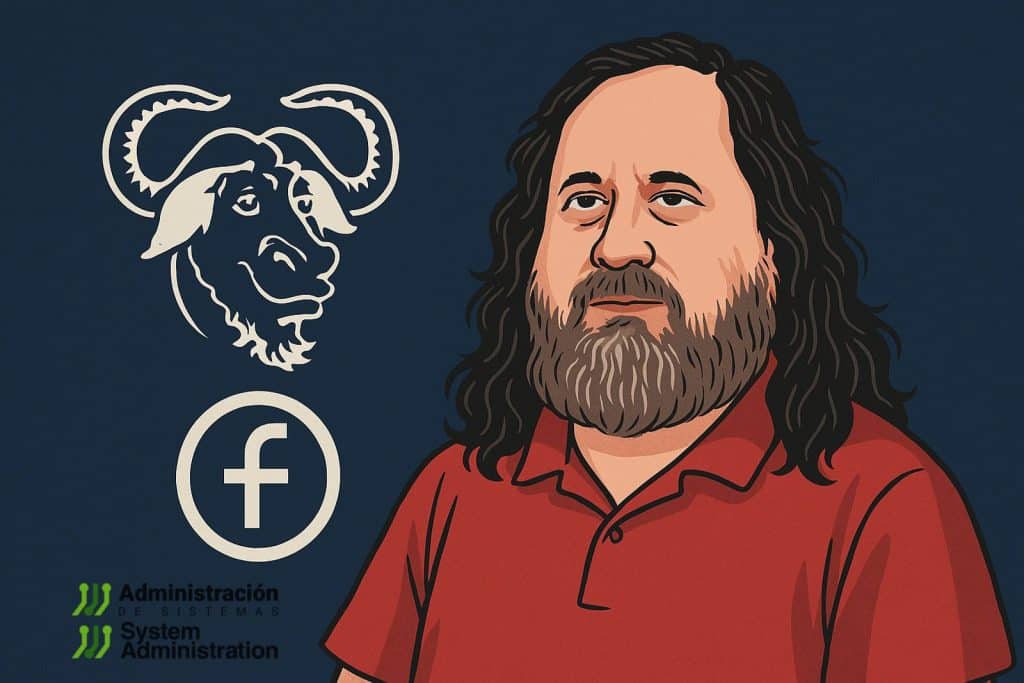In a world increasingly dependent on software, the voice of Richard Stallman, founder of the Free Software movement, resonates with singular force. For Stallman, software is not merely a technical tool but a political, ethical, and social battlefield. His discourse, backed by decades of activism and development, highlights a key question for IT professionals, system administrators, and infrastructure managers: does the user control their computing, or are they being controlled by it?
Since launching the GNU Project in 1984 and now serving as the volunteer president of the Free Software Foundation, Stallman has tirelessly defended the four essential freedoms that a program must grant to be considered free: the freedom to run the program for any purpose, to study how it works and change it, to redistribute copies, and to distribute modified versions. According to Stallman, these freedoms are not only necessary to guarantee user autonomy, but also to ensure security, sustainability, and technological sovereignty. Without these freedoms, software becomes a tool of digital oppression.
In a recent interview, Stallman reiterated the critical distinction between “free software” and “open source.” While the latter emphasizes practical benefits and development efficiency, the former focuses on liberty and social justice. “Non-free software is a social problem,” he states, advocating its replacement as an unavoidable ethical responsibility. For Stallman, referring to software as “free” is not a semantic issue—it is a declaration of values.
For public administrations and government entities, Stallman is unequivocal: using proprietary software is tantamount to surrendering technological sovereignty. “When a public agency loses control of its computing, it is failing its duty to the people,” he states firmly. Initiatives like Ecuador’s presidential decree mandating a transition to free software—though poorly implemented—are viewed by Stallman as steps in the right direction. He calls for all nations to legislate the adoption of free software across all levels of government, in order to ensure transparency, economic savings, and independence from foreign corporate interests.
From a technical standpoint, Stallman criticizes cloud services for their opacity and centralization. “The cloud doesn’t exist, except in the user’s mind,” he says with irony. For him, handing over processing and data to third-party servers is an unacceptable surrender of computing control. In a context where remote access, distributed systems, and third-party dependencies are common, his reflection urges a rethinking of architectures from the standpoint of independence, auditability, and trust.
He has also openly condemned mechanisms such as DRM (Digital Restrictions Management) and U.S. legislation like the DMCA, which penalize users for bypassing restrictions that prevent them from exercising rights over their software and digital content. According to Stallman, many proprietary programs contain “malicious functionalities”—from spyware and backdoors to constant user tracking—posing serious risks to personal security, privacy, and digital sovereignty.
Among the solutions proposed by the GNU movement is GNU Taler, an anonymous digital payment system that offers secure transactions without compromising user privacy. Unlike cryptocurrencies such as Bitcoin, which do not provide full anonymity, Taler is designed to protect the payer while maintaining transparency for merchants. As Stallman puts it, “A just society requires free and anonymous computing.”
In times of centralized digital identities, mass surveillance, and technological concentration, free software is not just a technical alternative but a model for digital governance. For system administrators and IT leaders, adopting free solutions is not only an economic or technical decision, but a principled stance that reinforces autonomy and professional ethics. Globally, the Free Software movement stands as an organized resistance against the concentration of digital power in the hands of a few corporations.
As Richard Stallman often concludes in his lectures: “Happy hacking—but with freedom.” More than just a motto, it’s a constant reminder that computing can and must serve the fundamental rights of individuals and the communities that depend on it.
Sources: Publicación en u-Gob & Revista Cloud. Illustration from IAfreeimages.

